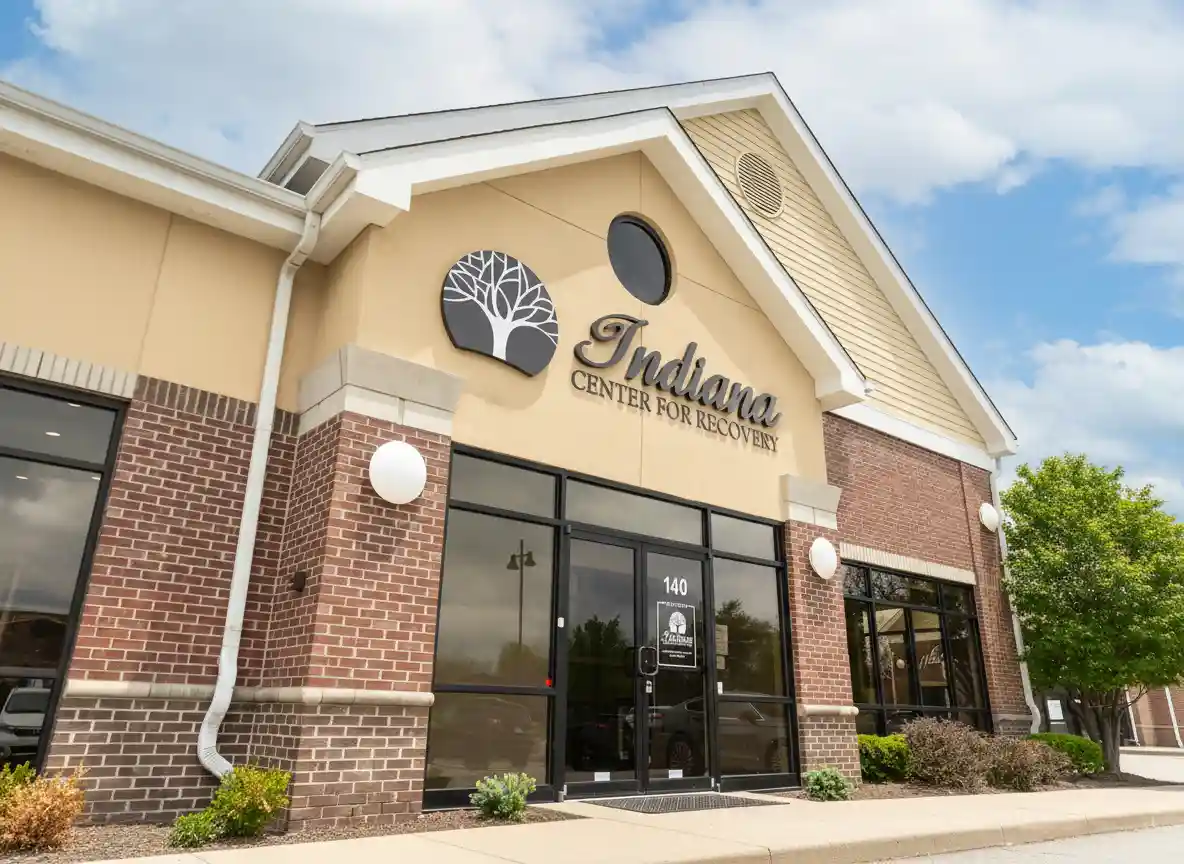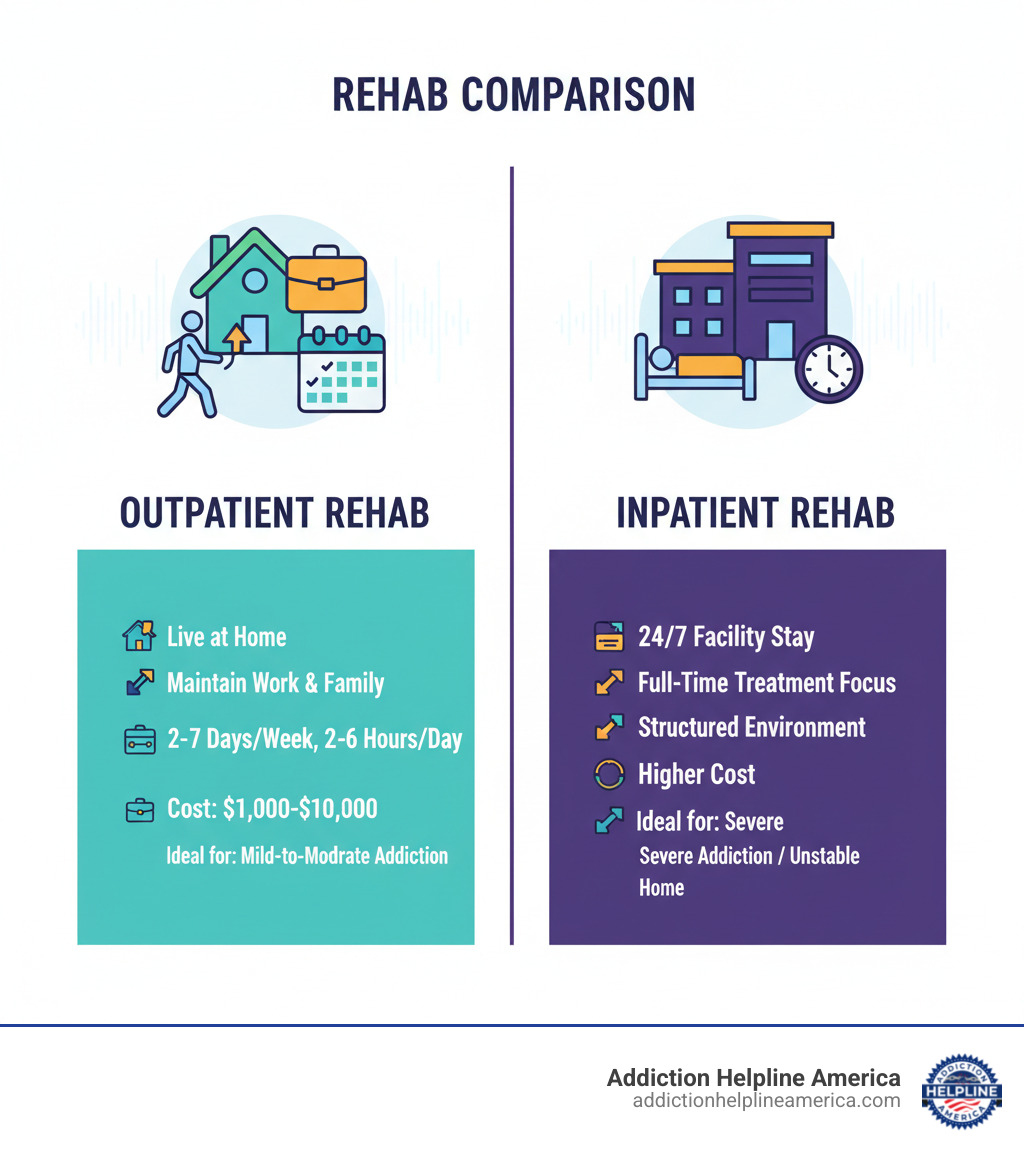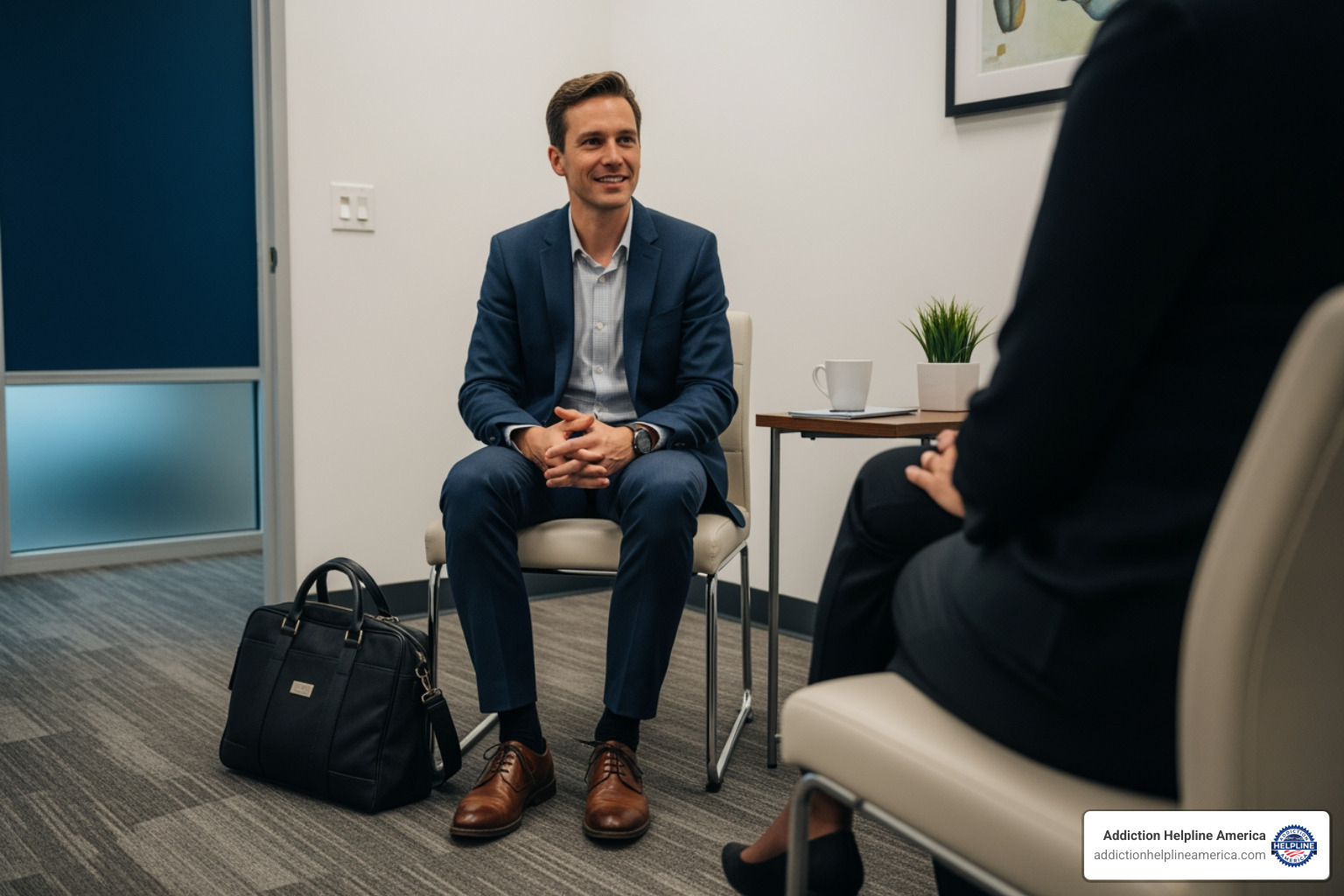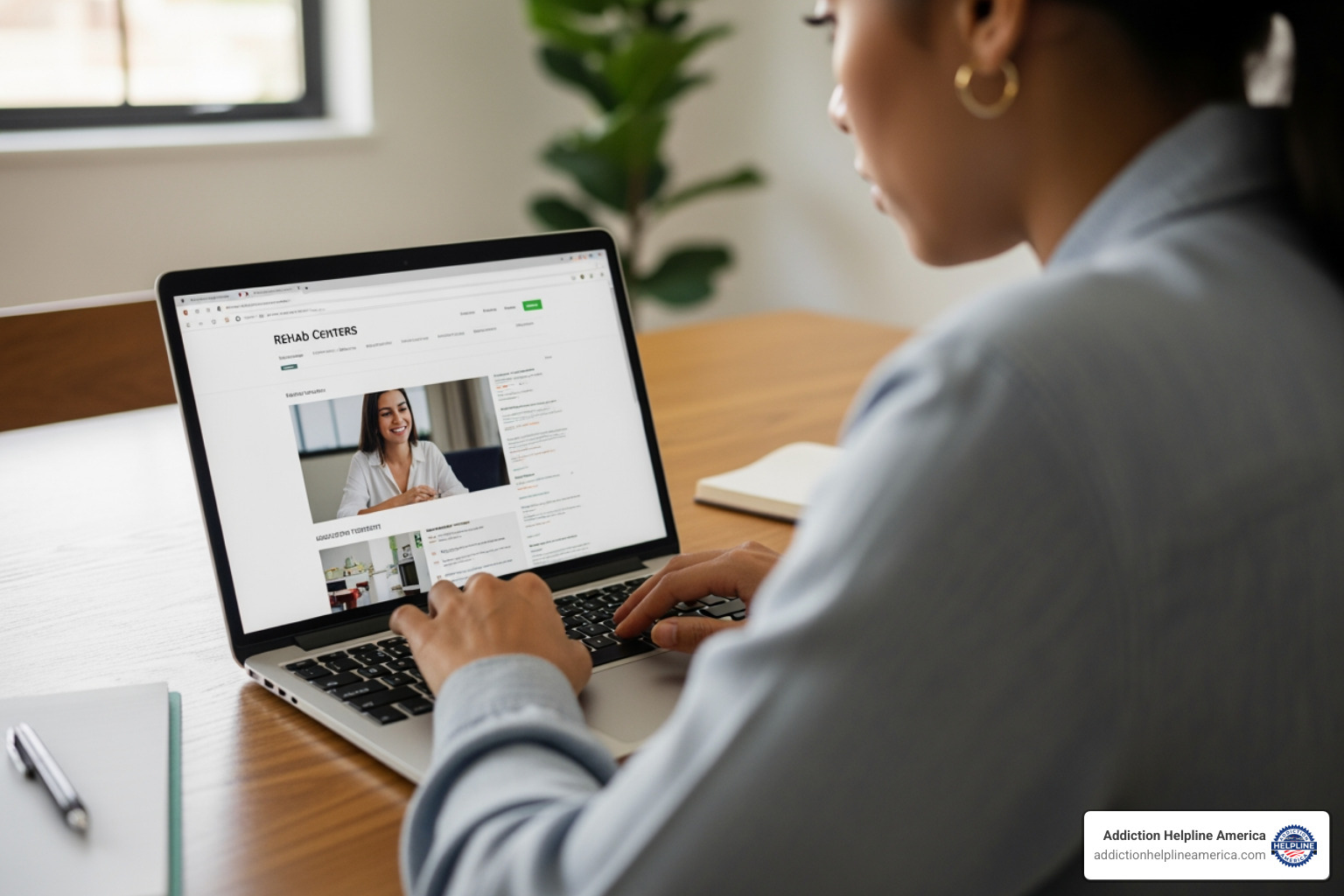
Finding the Right Outpatient Rehab in Indiana: Your Path to Recovery Starts Here
Outpatient rehab Indiana programs offer flexible, evidence-based treatment for addiction and co-occurring mental health conditions. They allow you to maintain work, family, and daily responsibilities while receiving professional care. Here’s what you need to know:
Quick Guide to Outpatient Rehab in Indiana:
- What it is: Treatment sessions at a facility without overnight stays
- Who it’s for: Individuals with mild-to-moderate addiction or those transitioning from inpatient care
- Program types: Partial Hospitalization (PHP), Intensive Outpatient (IOP), Standard Outpatient (OP)
- Cost range: $1,000-$10,000 for full programs; $50-$150 per individual session
- Insurance: Most Indiana programs accept private insurance and Medicaid
- Time commitment: Varies from 2-6 hours per day, 2-7 days per week depending on program level
If you or a loved one is struggling with addiction, you’re not alone. Finding the right treatment can feel overwhelming, especially when balancing life’s demands with the urgent need for help.
Outpatient rehab offers a lifeline for many in Indiana who need professional addiction treatment but can’t step away from their daily lives. Unlike residential programs, outpatient treatment lets you return home each day. This means you can keep your job, care for your family, and immediately apply what you learn in therapy to real-world situations.
Indiana has a wide range of outpatient programs across the state, from Indianapolis to smaller communities. These programs treat alcohol and opioid addiction, as well as co-occurring mental health conditions like anxiety and depression. Using evidence-based therapies like Cognitive Behavioral Therapy (CBT) and Medication-Assisted Treatment (MAT), Indiana’s outpatient centers provide customized care.
The cost is often more affordable than inpatient treatment. While comprehensive care can be expensive, outpatient programs typically range from $1,000 to $10,000, and most centers work with major insurance plans.
This guide will walk you through everything you need to know about outpatient rehab in Indiana, from program types and therapies to finding accredited centers and navigating insurance. We’ll provide practical tools to help you make an informed decision.
At Addiction Helpline America, we connect individuals and families across Indiana with quality outpatient rehab programs. Our team provides free, confidential guidance 24/7 to help you understand your options for outpatient rehab Indiana and take the first step toward lasting recovery.
Understanding Outpatient Rehab: A Flexible Path to Recovery
For many facing addiction, stepping away from life for residential treatment feels impossible due to work, family, or other obligations. Outpatient rehab offers a flexible solution.
The main difference between inpatient and outpatient treatment is where you sleep. Inpatient care requires living at the facility 24/7, while outpatient treatment involves attending sessions for several hours a day or week and returning home afterward.
This flexibility allows you to keep working, stay connected with family, and maintain your daily routines. Outpatient rehab is also typically more affordable than residential treatment. A key advantage is the ability to practice new coping skills in your real-world environment immediately, with ongoing support from your treatment team. You build recovery skills where you’ll use them—at home, at work, and in your community.
Who is a Good Candidate for Outpatient Treatment?
Outpatient treatment is effective for many, but it’s not for everyone. It’s crucial to determine if it’s the right fit for your situation.
You’re likely a good candidate for outpatient treatment if you:
- Have a mild to moderate addiction and are not in immediate medical danger from withdrawal.
- Possess a strong support system and a stable, substance-free home environment.
- Are motivated and can take responsibility for your recovery between sessions.
- Are transitioning from inpatient care and need continued support (a “step-down” approach).
- Need to maintain work, school, or family responsibilities during treatment.
For a deeper look at what outpatient treatment involves, visit our page on Outpatient Treatment.
Common Conditions Treated in Indiana
Indiana’s outpatient rehabs treat a wide range of substance use disorders and co-occurring mental health conditions. Addressing both simultaneously is key to successful recovery.
Substance use disorders are the primary focus. This includes:
- Alcoholism: One of the most common addictions treated.
- Opioid Addiction: Heroin, fentanyl, and prescription painkillers are addressed, often with Medication-Assisted Treatment (MAT).
- Other Substances: Programs also treat addiction to cocaine, methamphetamines, benzodiazepines, marijuana, and more.
Addiction rarely travels alone. Many people also struggle with anxiety, depression, PTSD, or bipolar disorder. This is known as a dual diagnosis or co-occurring disorder. Treating just the addiction often isn’t enough, as the underlying mental health issue can trigger a relapse. That’s why integrated care, which addresses both conditions together, is critical.
Indiana’s outpatient programs increasingly provide dual diagnosis treatment, helping you manage anxiety while learning to cope with cravings, for example. Research confirms that treating co-occurring disorders together significantly improves recovery outcomes. For more information, you can read about the interaction of co-occurring mental disorders and recovery.
Whether you’re struggling with alcohol, opioids, or a combination of substance use and mental health issues, Indiana’s outpatient programs offer comprehensive care to help you heal.
Types of Programs and Therapies in an Outpatient Rehab Indiana Program
When exploring outpatient rehab Indiana options, you’ll find a variety of programs designed to meet different needs. This customization is key, as your treatment plan should be built around your unique situation, substance use history, and recovery goals.
Levels of Outpatient Rehab in Indiana
Outpatient treatment exists on a spectrum of intensity. Finding the right level is crucial for success.
- Partial Hospitalization Programs (PHP): The most intensive level, often called “day programs.” PHP offers clinical intensity similar to residential treatment, with sessions 5-7 days a week for 6+ hours a day. It’s ideal for those needing substantial support but who have a stable home to return to.
- Intensive Outpatient Programs (IOP): A middle ground offering significant support with more flexibility. You’ll attend treatment 3-4 days a week for several hours per session, allowing you to maintain more of your daily routine.
- Standard Outpatient Programs (OP): The most flexible option, with sessions once or twice weekly. OP is excellent for long-term support, step-down care, or for individuals with milder substance use concerns.
- Aftercare: Recovery is an ongoing journey. Many Indiana centers offer alumni programs, support groups, and continuing care to provide a long-term safety net.
Here’s how the commitment levels compare:
| Program Type | Weekly Commitment | Duration | Ideal For |
|---|---|---|---|
| PHP | 5-7 days/week, 6+ hours/day | Varies (often several weeks) | High support needed, but lives at home |
| IOP | 3-4 days/week, few hours/day | At least 1 month | Moderate support, more flexibility |
| OP | 1-2 days/week, 1-3 hours/day | 3-9 months or longer | Mild support, long-term maintenance |
Core Services and Therapies Offered
Indiana’s outpatient centers use evidence-based therapies to address the root causes of addiction.
- Individual Counseling: One-on-one sessions provide a confidential space to explore the drivers of substance use. Therapies like Cognitive Behavioral Therapy (CBT) help change unhealthy thought patterns, while Dialectical Behavior Therapy (DBT) teaches skills for managing emotions and distress.
- Group Therapy: Sharing experiences with peers who understand your struggle builds a powerful sense of community and support.
- Family Therapy: Addiction affects the whole family. These sessions help rebuild trust, improve communication, and educate loved ones on how to provide healthy support.
- Medication-Assisted Treatment (MAT): For opioid or alcohol addiction, MAT combines FDA-approved medications with counseling. This approach is proven to increase success rates by managing cravings and withdrawal symptoms, allowing you to focus on therapy.
- Holistic Therapies: Many programs include mindfulness, meditation, art therapy, or physical activities to support overall well-being and stress management.
- Skill-Building Workshops: Practical workshops teach stress management, communication skills, and relapse prevention tactics for real-world application.
This comprehensive approach aligns with best practices. For more on evidence-based methods, explore NIDA’s guide to treatment approaches.
Your Guide to Finding and Paying for Outpatient Rehab in Indiana
Choosing the right outpatient rehab Indiana program is a critical step. The process can feel overwhelming, but this guide will help you find a quality center and make treatment affordable.
How to Find a Reputable Outpatient Rehab Indiana Center
To ensure you receive high-quality care, look for these key indicators:
- Accreditation: This is a seal of approval for quality and safety. Look for accreditation from The Joint Commission or CARF (Commission on Accreditation of Rehabilitation Facilities). LegitScript Certification also verifies compliance with healthcare laws.
- Evidence-Based Practices: Reputable centers use therapies proven by research, such as CBT, DBT, and MAT. Avoid one-size-fits-all solutions.
- Reviews and Testimonials: High ratings and positive stories from former clients can indicate effective treatment and genuine care.
- Specialized Programs: If you have specific needs (e.g., you’re a veteran, part of the LGBTQ+ community, or have a dual diagnosis), look for centers with custom programs.
Indiana has hundreds of outpatient centers, from large cities like Indianapolis and Fort Wayne to smaller communities, making it easier to find care close to home.
When you call a potential center, be prepared with questions:
- Is your facility accredited by The Joint Commission or CARF?
- What outpatient programs do you offer (PHP, IOP, OP)?
- What therapies do you use (CBT, DBT, MAT)?
- Do you treat co-occurring mental health disorders?
- What is the typical schedule and duration of your programs?
- What is the cost, and do you accept my insurance?
- What aftercare support do you provide?
Any reputable center will welcome these questions.
Navigating Costs and Insurance Coverage
Treatment is an investment in your future, and there are many ways to make it affordable.
Outpatient rehab Indiana programs are generally more affordable than residential care, with full programs typically ranging from $1,000 to $10,000. Individual sessions may cost between $50 and $150 out of pocket. The exact cost depends on the program’s intensity and duration.
Most people don’t pay the full amount themselves. Insurance coverage for addiction treatment has expanded significantly. Most Indiana programs work with private providers like Blue Cross Blue Shield, United Healthcare, Aetna, and Cigna. If you have Indiana Medicaid, many facilities accept your coverage, which can dramatically reduce or eliminate costs.
Verify your coverage. Call your insurance provider or ask the rehab’s admissions team for help. They can clarify what’s covered, your deductible, and any co-pays. If cost is still a barrier, ask about flexible payment plans or sliding-scale fees. Don’t let financial worries stop you from seeking help.
For more details on rehab options and payment, visit our page on More info about Indiana rehab options.
Addiction Helpline America offers free, confidential guidance to help you find a program that fits your needs and budget.
Frequently Asked Questions about Outpatient Rehab in Indiana
Considering treatment brings up many questions. Here are answers to some of the most common ones about outpatient rehab Indiana options.
How long does outpatient rehab typically last?
The duration of treatment depends on your unique needs, the program’s intensity, and your progress. There is no one-size-fits-all timeline.
- Partial Hospitalization Programs (PHP) are intensive and typically run for several weeks.
- Intensive Outpatient Programs (IOP) usually last at least one month, with many people continuing for several months.
- Standard Outpatient Programs (OP) are longer-term, often running from three to nine months for ongoing support.
Recovery is a lifelong journey, and many people benefit from aftercare services like support groups for months or years after their formal program ends. The goal is to build a strong foundation for lasting sobriety.
Can I keep working while in an outpatient program?
Yes. This is a primary advantage of outpatient rehab Indiana. Programs are designed to fit into your life.
IOP and standard OP programs are especially flexible, with morning, evening, and weekend sessions to accommodate work or school schedules. You can receive treatment without taking an extended leave from your responsibilities.
Even intensive PHP programs allow you to return home each evening. While they require a significant time commitment (6+ hours a day), many people arrange a modified schedule with their employer. This flexibility allows you to apply therapeutic skills to your daily life in real-time.
Does outpatient rehab include detox?
Generally, no. Outpatient rehab Indiana programs focus on therapy and counseling after the initial detoxification process is complete. Detox is a separate first step.
Detoxification is the safe management of physical withdrawal symptoms, which can be medically serious and often requires 24/7 supervision in an inpatient or specialized detox facility. Outpatient detox may be an option for those with mild to moderate symptoms and a strong support system at home, but most outpatient centers do not provide this service directly.
For safety, we strongly recommend inpatient medical detox for anyone with a history of severe dependence. Once you are medically stable, you can transition to an outpatient program to continue your recovery. Detox clears the physical fog, while rehab teaches you how to live in clarity. To learn more, explore SAMHSA’s guide on Detoxification.
Taking the Next Step Towards Recovery in Indiana
Deciding to seek help is a brave and powerful first step. Choosing to enter treatment can feel overwhelming, but you don’t have to do it alone.
Outpatient rehab Indiana programs offer a path to reclaim your life while maintaining your daily responsibilities. The flexibility of outpatient care allows you to attend therapy, learn coping skills, and build a foundation for recovery while still living at home.
As this guide has shown, outpatient rehab is an effective, affordable, and accessible option. With different levels of care (PHP, IOP, OP), evidence-based therapies, and broad insurance acceptance, there is a program that can work for you. Recovery is about more than stopping substance use; it’s about building a life you don’t want to escape from, healing relationships, and finding hope.
Your Path to a Healthier Future Starts Here
At Addiction Helpline America, our mission is to connect people with the right treatment. We offer free, confidential conversations to listen to your story and help you understand your options without pressure.
Our team understands the Indiana treatment landscape. We can help you verify insurance, compare program types, and schedule an assessment. We have connected thousands of families to quality outpatient rehab Indiana programs that fit their unique needs and circumstances.
There is never a perfect time to start recovery, but there is always a right time. If you’re reading this, that time might be now. Your future can be different from your past. Help is available, and recovery is possible.
Take that first step today. Reach out to us, and let’s find the program that’s right for you: Find the right rehab program for you.
Our helpline is 100%
free & confidential
If you or someone you care about is struggling with drug or alcohol addiction, we can help you explore your recovery options. Don’t face this challenge alone—seek support from us.
Programs
Resources
Will my insurance
cover addiction
treatment?
We're ready to help
Find the best
drug or alcohol treatment
center
Are you or a loved one struggling with addiction? Call today to speak to a treatment expert.









